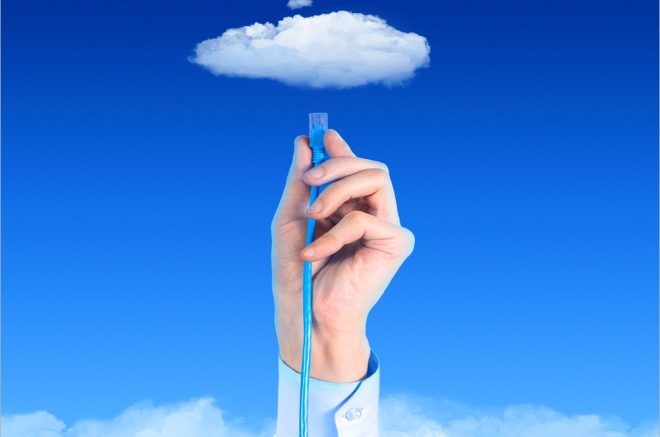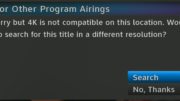Think back to those days back in the 2000s. Back then, you might have been an “early adopter.” You had a DVR and that’s where the stuff you wanted to watch sat. You had total control — you set up the recordings and you deleted them.
Then, on demand came. In a sense, on-demand is kind of like a cloud DVR. It stores stuff you want to watch plus a whole lot more. Some people jumped on it right away and stopped worrying so much about the DVR.
A few years later, streaming video really hit big. That wasn’t so long ago, right? I mean it wasn’t that long ago that a lot of people still had to deal with buffering and low quality when they wanted to stream.
It seems like the best of all words came with DIRECTV’s and Sling TV’s Cloud DVR. Let me explain.
Enter the cloud
When you set up a recording with DIRECTV for internet (DIRECTV Stream) or Sling TV, you’re doing nothing more than setting a shortcut, like a shortcut to your desktop. A lot of programs on both services is already being recorded somewhere. You’re just telling the service that you want it on your “playlist.” I’m sure there are some programs that don’t record at all unless someone asks for them. If you do ask for one of those then it records and then adds it to your playlist.
This is a change to earlier forms of cloud DVR, which actually did a separate recording for everyone who asked for it. At the time this was sort of a negotiated settlement. Content providers didn’t like cloud-based DVRs at first and actually sued to stop them. Funny thing, those content providers actually won! It took until 2009 for the Supreme Court to say that a cloud-based DVR could even be legal.
Today’s cloud DVR systems are more a result of legal maneuvering than technology. The technology by now is pretty easy, but it took years for the lawyers at DISH and DIRECTV to come up with the contracts.
DVR is easy, contracts are hard
The Cablevision case, as it was called, established the rules:
- Cloud DVR is a form of broadcasting.
- Broadcasting is ok if the rights holder says it’s ok.
- People who want to broadcast have a right to ask if it’s ok, and the rights holder has a right to set whatever terms they want.
It comes down to those simple principles and so, armed with that, the lawyers went to work. They came up with some rules. You couldn’t keep stuff on your playlist indefinitely. In most cases it’s going to disappear after somewhere between 30 days and 90 days. You can’t keep stuff longer than the pay-TV company has the right to keep it anyway. And, the TV company has the right to charge for DVR service if they want. That all makes sense, although it’s frustrating if you thought you’d be able to watch that recording of the evening news forever.
Which is better, cloud or regular?
After all, you’ve read this far based on the title of the article, and you deserve an answer. A cloud DVR lets you watch your content anywhere. Most regular DVRs do too but it’s not always as easy. A regular DVR lets you keep your recorded content as long as you have the DVR. Neither of them lets you offload content.
I think the closest thing to perfection would be a system where the DVR uploads its playlist to a central server. The goal would be to match the programs on a local DVR with those on a cloud DVR. That way if you changed DVRs, you’d still have access to some of your programs.
This wouldn’t really solve the problem of people keeping old content on their DVRs, because once you’d passed that 30-90 day mark then DIRECTV or DISH wouldn’t have that content in the cloud. But, it would still let people watch stuff they’ve recorded recently.
A lot of folks would say that the answer would be to just let people offload content to a local hard drive without encryption. Sure, I agree that would be great. But I think you can imagine that it would create as many problems as it solves.
Looking to upgrade your entertainment system?
If you’re ready to make a change, call the experts at Signal Connect. We’re here for you during East Coast business hours. Just call 888-233-7563. If it’s after hours, just fill out the form below and we’ll get right back to you.




